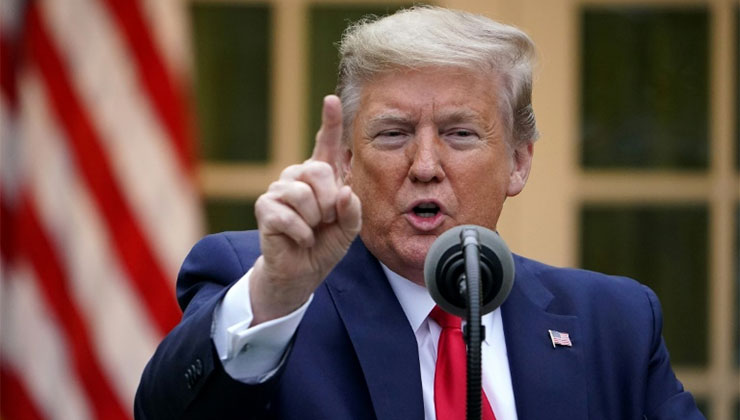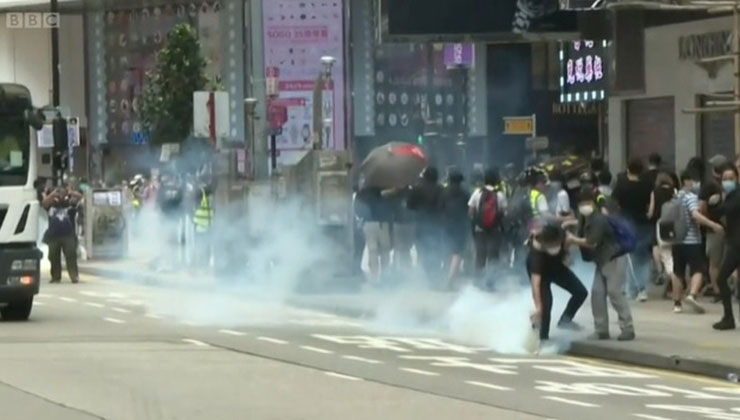Trump hits China with order on Hong Kong trade, Beijing says to retaliate

US President Donald Trump has signed an order to end preferential economic treatment for Hong Kong, after China enacted a new security law there.
“Hong Kong will now be treated the same as mainland China,” Mr Trump said.
He also signed bipartisan legislation to impose sanctions on Chinese officials who crackdown on rights in Hong Kong. China said it would take retaliatory action.
Hong Kong has so far enjoyed unique freedoms not seen in mainland China.
But many people in the territory fear the new security law imposed by Beijing will bring an end to Hong Kong’s special status, agreed under a 1984 pact between China and Hong Kong’s former colonial power, the UK.
The legislation – which outlaws criticism of China’s government – is the most sweeping change to the political landscape of Hong Kong since it was handed back to China by the UK in 1997.
What did President Trump say?
Speaking in the Rose Garden on Tuesday, Mr Trump said his executive order would end preferential treatment for Hong Kong.
“No special privileges, no special economic treatment and no export of sensitive technologies,” said the president, who first announced in May that his administration would begin paring back the territory’s special status.
He also told reporters he had signed the Hong Kong Autonomy Act, which passed unanimously in Congress earlier this month.
“This law gives my administration powerful new tools to hold responsible the individuals and the entities involved in extinguishing Hong Kong’s freedom,” Mr Trump told the news conference.
The president said when asked by a journalist that he had no plans to speak to Chinese President Xi Jinping.
He told reporters that “we hold China fully responsible for concealing the virus and unleashing it upon the world”.
Mr Trump’s own administration is under scrutiny for its response to the coronavirus pandemic – the US has 3.4 million recorded cases, the highest in the world.
The president’s policy address digressed into a lengthy political attack on his Democratic presidential challenger, Joe Biden, ranging from trade and immigration to policing and climate change.
How did China respond?
In a statement, the Chinese foreign ministry condemned the latest US moves, urging Washington to stop interfering in China’s internal affairs.
The ministry said the Chinese authorities would also impose retaliatory sanctions against American individuals and entities.
“China will make necessary responses to protect its legitimate interests,” the statement said.












